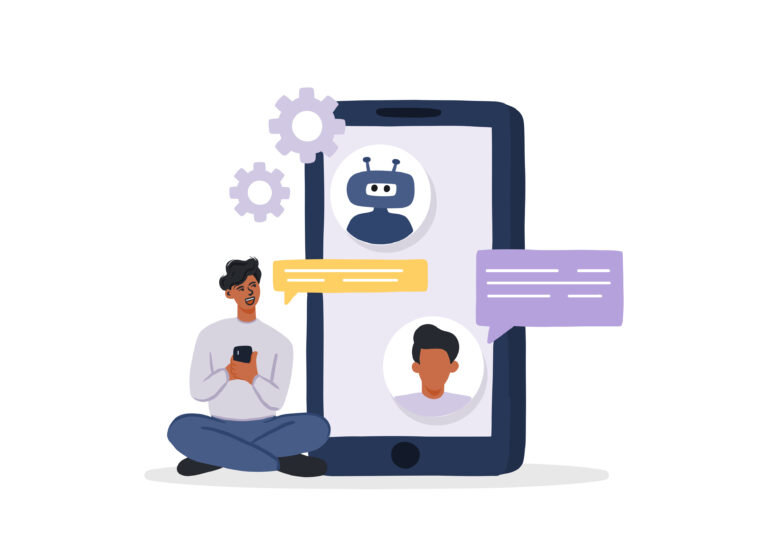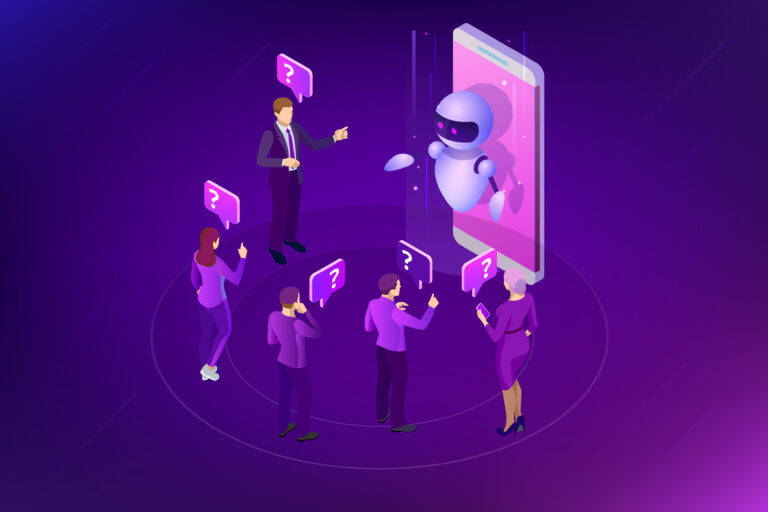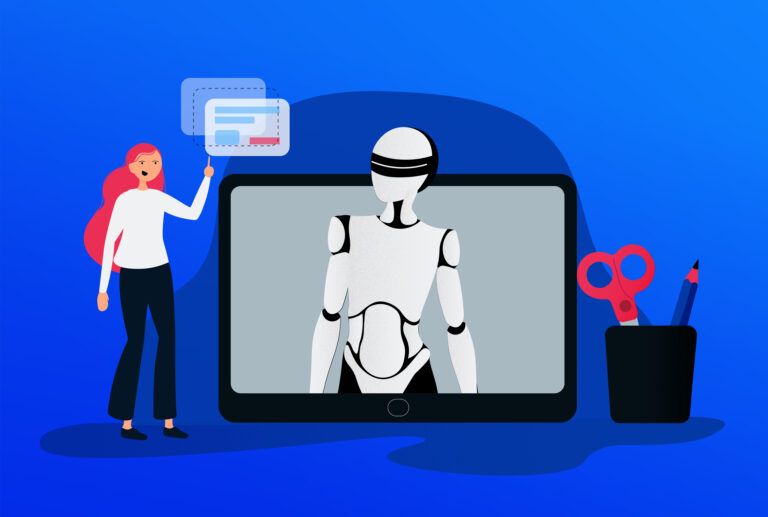If you’ve been keeping up with current events, then you’ve probably heard of a new form of artificial intelligence called ChatGPT. ChatGPT is a chatbot developed by OpenAI that was initially launched in November of 2022 and has recently been gaining popularity. The new software is trained to interact with the user in a conversational way, meaning it can ask and answer questions, follow prompts, and create material based on requests. All the user has to do is type in their question or request, and ChatGPT will return relevant information. This new AI is incredible in its ability to create coherent and natural-sounding responses, making it the newest hot topic for schools, employers, or any other organization that may be affected by this new AI.
Many people are excited about the potential of this development in AI, while others are concerned about the impacts it may have. This AI has the ability to write essays, create legal documents, solve complex math problems, and even pass the medical licensing exam, meaning anyone can now use it to write things that they may not have otherwise been able to do. Educators have recently started discussing the use of ChatGPT by their students out of concern that future students may become reliant on the technology to answer questions, plagiarize work, or complete assignments for them. ChatGPT’s newfound fame has also sparked some debates on who owns the content that is generated and how accurate its responses really are. In the IT world, there is a possibility that ChatGPT might be abused by cybercriminals and potentially be used for things like enhanced phishing scams or hacking accounts.

ChatGPT Poses Risks to Cybersecurity
Since ChatGPT is designed to sound humanlike, the software might be used to make phishing scams look or sound more realistic, as highlighted in a recent CompTIA article on the risks of AI-powered Chatbots. Phishing emails that may have been easy to spot before because of broken English or jumbled sentences may be much better disguised after being processed by ChatGPT. In this case, a cybercriminal would be able to create scam messages through ChatGPT that sound much more like a native speaker to the victim, making them much harder to pick out from any other email. We know very well now just how capable ChatGPT is of writing coherent content, and scammers can and will take advantage of its intelligence. This is most likely just one of the many risks that AI like ChatGPT could pose on cybersecurity in the near future.
ChatGPT could also potentially give cybercriminals the tools they need to write and use malicious code that they otherwise would not have had the knowledge to be able to write or find on their own. Within weeks of ChatGPT’s release, cybercriminals had already discovered ways to use it to create emails and software for deceptive, malicious use. ChatGPT could even be used to replicate known malware strains and scam techniques. Although OpenAI says that their goal is for ChatGPT to not be used in harmful ways, chances are, cybercriminals will continue to use this tool to enhance their attacks.
If a cybercriminal were to hack into or take control of a chatbot like ChatGPT, many consequences could arise. They could use an innocent person’s trust in ChatGPT to easily direct them to malicious sites or convince them to download malware. Also, since this AI uses a data scraping method to gather data from across the internet, it may accidentally expose sensitive data about people or businesses that otherwise could not have been accessed by an outsider. ChatGPT has inadvertently expanded everyone’s exposure potential to cybersecurity threats by a massive amount. Additionally, ChatGPT could be used to scrape the internet and build profiles on specific people, making targeted attacks easier than ever.

ChatGPT in the Business World
ChatGPT has the potential for many different uses in business, like automatically generating reports or responses. It has already begun to be used for things like email analysis and customer information collection. It can also be used for summary generation, semantic searches, and of course, code generation. This could greatly speed up the processes of many businesses and help with productivity. Though, this too comes with its own unique set of risks. ZDNET provided some interesting statistics on the risks of ChatGPT in business in their recent article about ChatGPT.
Since ChatGPT scrapes the internet as its source for the responses it gives, it is hard to determine what types of biases or vulnerabilities it might be creating or utilizing in the process. Although this AI is extremely smart, it still has its limits, and it still can spread misinformation or create errors. As of now, it is recommended to only use ChatGPT for business issues in low-risk situations that cannot cause damage to your customers or your company. It is important to remember that the content that ChatGPT creates can be completely inaccurate, so it cannot be trusted all of the time.
ChatGPT is going to be a major source for cybercriminals now, so it is very important to keep your company’s online information extremely secure. Employers and employees must start educating themselves and the potential risks that AI could pose to their personal and professional cybersecurity, and the extent of the damage that could be done. Also, continued education in the future about AI like ChatGPT is equally as important as the initial education, since this technology is constantly changing, and cybercriminals are constantly inventing new ways of attacking your systems.

Also, keep in mind that it is not yet clear what ChatGPT does with your information after it is collected. There has not been a ton of clarity when it comes to what data is collected, where that data goes, or how it is used. Like every online platform, it is important to be cautious regarding what information you put into software like ChatGPT.
Right now, it is important to determine how you want your employees to use ChatGPT, if you want them to at all, and what you will not allow within your company. There has already been a reported case of a doctor using ChatGPT to request insurance approval for a patient’s procedure, meaning private healthcare information was supplied to be included in the letter created. And it was reported that an executive that had a status update due on the progress of an internal project supplied proprietary and privileged information to ChatGPT so it could produce their report for him. Some companies are choosing to warn their employees to not share sensitive or private information with the ChatGPT software, and some are banning it entirely. Others are figuring out how to use it for their benefit, while still setting boundaries. ChatGPT generated material can be tough to distinguish from man-made material, so some companies are putting safeguards in place in order to separate AI content from real content.
Though this is still developing technology, there are things you should be sorting out now to prepare for the future integration of AI programs like ChatGPT. It is likely to become more popular and utilized more frequently as time goes on, so understanding its implications early on will be important.
Check out our last blog post here: The Security Risks Associated With USB Drives
